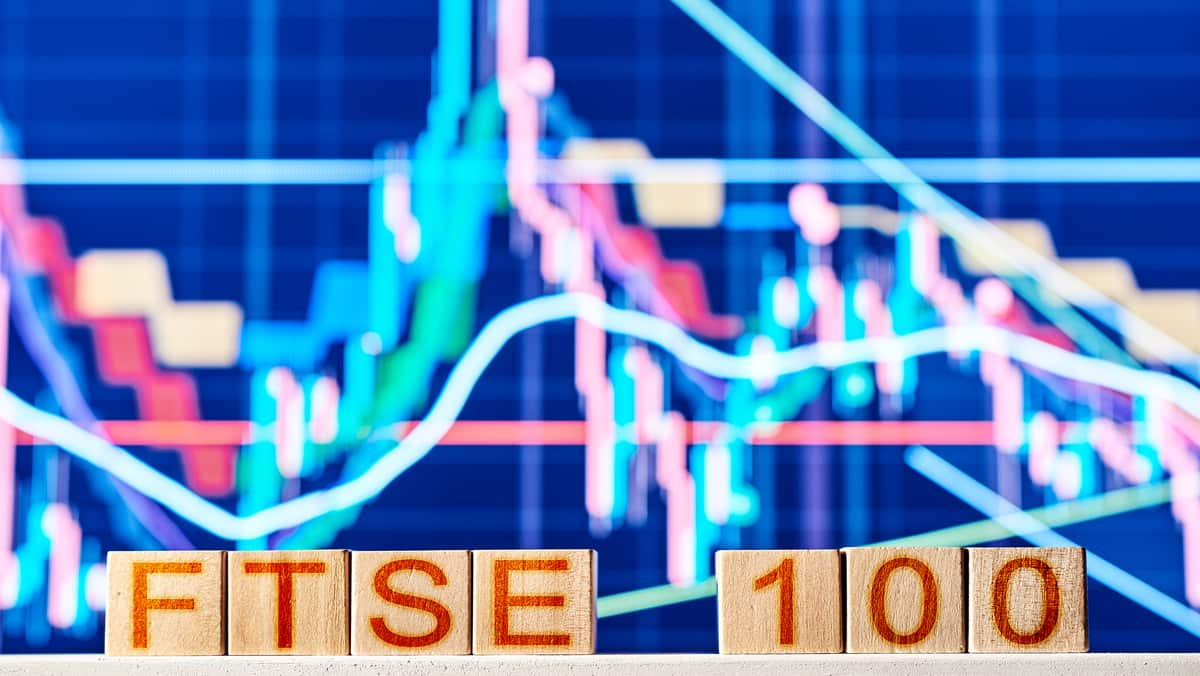
The FTSE 250 Index is one of the UK’s most widely followed stock market indices. It comprises mid-cap companies listed on the London Stock Exchange and provides a benchmark for the performance of medium-sized businesses.
This article will examine the FTSE 250 Index, its constituents, and how investors can use it to make informed decisions.
The FTSE 250 Index measures the share price performance of the 101st to 350th largest companies by market capitalization listed on the primary market of the London Stock Exchange.
It represents the mid-cap segment, covering companies below the large caps in the FTSE 100 Index.
To be included in the FTSE 250 Index, companies must meet specific eligibility criteria set by FTSE Russell.
It includes having a complete listing on the London Stock Exchange with a Sterling or Euro-denominated price on SETS or SETSmm, meeting minimum size and liquidity thresholds, and complying with FTSE Russell’s free float rules.
The index is rebalanced quarterly in March, June, September and December.

The FTSE 250 serves a crucial benchmarking role for UK mid-cap equities. Here are some of its essential uses:
Gauge Performance of Mid-Sized UK Firms: The index allows investors to track the overall performance of medium-sized companies that are too small for the FTSE 100—the FTSE 250 Index covers around 15% of the UK market cap.
Identifying Investment Opportunities: Analysis of FTSE 250 companies can uncover potential investment opportunities. Fundamental shifts in constituent weights and prices can signal emerging trends.
Macroeconomic Indicator: As a barometer for mid-sized UK businesses, FTSE 250 Index performance offers insights into the British economy and investor sentiment. The index can foreshadow economic moves.
Basis for Derivatives: Options, futures, and other derivatives are traded based on the FTSE 250 Index and its components on the London Stock Exchange and other venues. This allows for hedging and spread betting.
You might also like to read: EURO STOXX 50 Index - All You Need to Know
The FTSE 250 contains many well-known UK enterprises with a national footprint and global ambitions. Here are some of the most prominent constituents:
4imprint is the largest company in the FTSE 250, with a market capitalization of £1.4 billion. It is a leading provider of promotional products and marketing services.
Its shares have surged over 11% in January 2024. The company has seen growing demand as businesses ramp up branding and gifting activities.
The second most valuable FTSE 250 firm, with a market cap of £923.78 million as of January 2024, Watches of Switzerland is the UK’s biggest retailer of luxury timepieces.
It carries brands like Rolex, Cartier, and OMEGA through its chains Goldsmiths and Mappin & Webb and mono-brand boutiques. The company’s revenues have benefited from rebounding luxury spending.
This Austria-based manufacturer of refractory products has a market cap of £1.58 billion. Refractories are heat-resistant materials from heavy industries like steel, cement, and glass.
The company was formed via a 2017 merger between RHI and Magnesita. Its share price increased to 3% in January, indicating healthy demand forecasts.
Just Group provides annuity and retirement products and has over 1 million customers.
Despite challenges in the UK annuity market, its shares have risen 2% in January on the back of new product launches catering to pensioners. It is currently valued at £883 million.
Indivior manufactures speciality pharmaceutical products, including the opioid addiction treatment Suboxone Film.
The £1.6 billion company saw its stock price rise 2% in January following approval for Sublocade, its new extended-release treatment. Revenues have stabilized after the loss of Suboxone exclusivity.
This article may pique your interest: What is the US500 Stock Index?

For investors, the FTSE 250 provides a lower-risk way to gain exposure to the growth potential of Britain’s mid-cap space compared to investing in individual stocks.
These are the several options to invest in the index:
ETFs are investment funds traded on stock exchanges, similar to individual stocks. They track the performance of a specific index.
Investors can buy and sell ETF shares throughout the trading day at market prices.
Like ETFs, index mutual funds aim to replicate the performance of a specific index.
Unlike ETFs, mutual funds are bought and sold at the end of the trading day at the net asset value (NAV).
On the London Stock Exchange (LSE) and other exchanges, traders can place directional bets on the FTSE 250 or hedge their exposures through derivatives such as index futures and contracts for difference (CFDs).
With access to these financial instruments, traders can take advantage of market opportunities and manage risk more effectively.
The FTSE 250 can be used for spread betting, allowing traders to speculate on price movements in either direction.
One well-known provider is Markets.com. This platform has assisted traders for years and is regulated in various countries.
Investing in the FTSE 250 is a good way to share Britain’s future growth. It may be more volatile than the FTSE 100 but provides greater growth potential.
By actively managing and controlling its risks, the FTSE 250 can become a central investment in a diversified UK equity portfolio.
The FTSE 250 Index provides a useful benchmark for UK mid-cap equities and a window into Britain’s economic health.
Traders and investors should understand the index’s composition and weigh its constituents’ risks and opportunities.
Although the FTSE 250 provides exposure to dynamic medium-sized companies, it tends to be more volatile than large-cap indices.
Every investment is risky, so learning as much as possible beforehand is essential.
Learn and trade with markets.com: The ultimate trading community!
“When considering “CFDs” for trading and price predictions, remember that trading CFDs involves a significant risk and could result in capital loss. Past performance is not indicative of any future results. This information is provided for informative purposes only and should not be considered investment advice.”
Risk Warning: this article represents only the author’s views and is for reference only. It does not constitute investment advice or financial guidance, nor does it represent the stance of the Markets.com platform.When considering shares, indices, forex (foreign exchange) and commodities for trading and price predictions, remember that trading CFDs involves a significant degree of risk and could result in capital loss.Past performance is not indicative of any future results. This information is provided for informative purposes only and should not be construed to be investment advice. Trading cryptocurrency CFDs and spread bets is restricted for all UK retail clients.

World Index Today: In today's trading session, global stock indices have shown varied performances, reflecting a mix of investor sentiment and economic indicators.

Stock Market News: The global stock market landscape is constantly evolving, influenced by economic indicators, geopolitical events, and corporate developments.

Amazon (AMZN) Shares Jumped 4% Today: Amazon.com, Inc. is one of the largest e-commerce and cloud computing companies in the world.
set cookie